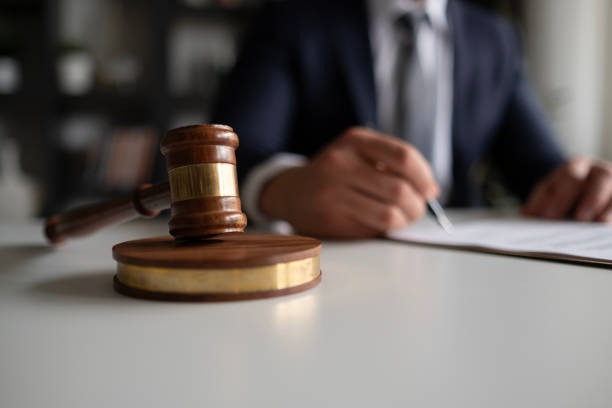Experiencing a personal injury can be daunting, especially when it comes to navigating the legal intricacies involved. Understanding each step of the personal injury case process can be a powerful tool in reducing stress and gaining some sense of control. Here’s a simplified look at what generally happens in a personal injury lawsuit, providing clarity and helping you prepare for each stage.
Key Stages in a Personal Injury Case
A structured approach to understanding the personal injury case process can demystify what lies ahead. Each stage has its significance, and preparing for these can make a meaningful difference in the case outcome.
Initial Consultation with a Lawyer
The journey typically begins with an initial consultation with a lawyer. During this meeting, the details of the injury, potential legal options, and an overview of the case trajectory are discussed. Selecting a lawyer with experience in handling personal injury claims is essential as it can provide a strategic advantage.
Gathering Evidence and Building the Case
Once the lawyer is on board, they initiate the investigation phase. This involves collecting comprehensive evidence to establish a strong case foundation. Key elements include:
-
Medical records that document the injury and treatments
-
Accident reports and any police documentation
-
Witness statements to corroborate the event’s circumstances
Having robust evidence is crucial for demonstrating the extent of harm and laying the groundwork for a successful claim.
Filing the Complaint
The complaint is the formal document that initiates the lawsuit. It outlines the plaintiff’s allegations, injury details, and the damages being sought. Filing it marks the official start of the legal proceedings, after which the defendant is given a specific timeframe to respond to the complaint.
The Discovery Phase
The discovery phase involves a detailed exchange of information between the parties. It’s aimed at clarifying the facts and gathering information that will be critical during the trial. Common practices during discovery include:
-
Interrogatories, which are questions exchanged between the parties
-
Depositions, where sworn testimonies are collected outside of court
-
Requests for the production of documents relevant to the case
This phase is vital for both sides to understand their stance and prepare their case strategy accordingly.
Motions and Hearings Before Trial
Before the trial commences, there may be several pre-trial motions and hearings. Lawyers might file motions to exclude evidence or request summary judgments. These hearings can resolve procedural disputes and shape how the trial proceeds, helping smooth out the process and sometimes even resolving the case early.
Settlement Discussions and Mediation
Personal injury cases often resolved through settlements rather than going to full trial. Settlement discussions aim to find a mutually agreeable solution, often facilitated through mediation. This approach can save time and resources, offering a level of certainty and closure without the complex court proceedings.
The Trial
If a settlement isn’t reached, the case proceeds to trial. This process comprises various stages, including opening statements, presenting evidence and witnesses, closing arguments, and finally, the jury’s deliberation and verdict announcement. While a trial can be lengthy, it provides a thorough platform for presenting all aspects of the case.
Post-Trial Motions and Appeals
After the trial, either party may appeal the decision if they believe legal errors affected the outcome. Post-trial motions might include requests for a retrial or adjustments to the judgment. It’s important to address any issues that arise promptly to avoid further delays.
Receiving Compensation
If the case is resolved in favor of the plaintiff, the next step is the disbursement of compensation. This is meant to cover medical expenses, lost wages, and other damages. Sometimes, the payment process may involve further negotiations regarding the amount or timeline for payment completion.
The Role of Lawyers
Choosing Legal Representation
Finding the right legal representation can significantly impact the case’s outcome. Lawyers specialized in personal injury law understand the nuances and can provide strategic guidance throughout the process. Practical steps in selecting a lawyer include researching their experience, verifying credentials, and seeking client reviews.
Effective Communication
Maintaining open lines of communication with your lawyer is critical. It ensures that you’re informed about the case’s progress and any developments. Lawyers who encourage questions and offer detailed updates create a better-informed client, which contributes to a more seamless case-handling process.
In personal injury scenarios, working with car accident lawyers in Corpus Christi, TX can provide a strategic edge, as they bring specialized knowledge and familiarity with local laws and court procedures.
Fee Structures
Before proceeding, it’s crucial to understand the fee structures that lawyers use. Many work on a contingency basis, meaning they receive payment only if the case is won. Discussing fees at the outset avoids surprises and allows for transparent financial planning throughout the legal process.
Recognizing Potential Setbacks
Understanding possible challenges in a personal injury case prepares you for setbacks, helping manage expectations and minimize stress.
Negotiating with Insurance Companies
Insurance companies often have strategies to limit payouts, making negotiations tricky. Engaging a lawyer can be vital in these discussions to ensure that you receive appropriate compensation. Lawyers adept at dealing with insurers bring essential advocacy to your case.
For those dealing with complex injury cases, seeking help from professional personal injury lawyers can offer the expertise needed to handle intricate legal and insurance matters efficiently.
Managing Medical Care and Costs
Ongoing medical treatment can complicate a personal injury case. Coordinating care, keeping track of treatments, and managing related expenses requires careful attention. Keeping detailed records is important and supports the case by documenting the extent of the injuries and ongoing treatment necessities.
Dealing with Emotional Strain
The emotional strain of pursuing a personal injury case is real and can be exhausting. Seeking support from mental health professionals or support groups can help maintain emotional well-being. Keeping a focus on recovery, both physical and mental, is crucial during the legal process.
Firms such as Perkins & Perkins offer crucial support during these challenging times, helping clients focus on healing while they handle the complexities of the legal process efficiently.
Closing Remarks
Navigating the personal injury case process with a clear understanding can significantly reduce stress and empower you to make informed decisions. Each step, from selecting a lawyer to negotiating settlements, plays a critical role in the outcome. Partnering with experienced lawyers provides valuable support, allowing you to concentrate on recovery. Staying informed and choosing the right team ultimately ensures that your rights are protected and you receive the compensation you deserve.



